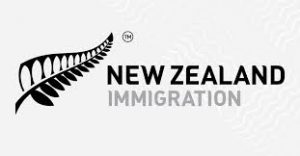
Implied Status can be complicated.
During the COVID pandemic, I have heard from both employers and employees that understanding when a worker can or cannot work is confusing, and leads to legal risks. Many employers have taken a more conservative approach that has left workers who have authorization to work and are awaiting a renewal, unable to engage in work.
Implied Status has also created the potential for abuse, specifically many unscrupulous agents and consultants will claim to have assisted on helping, even going so far as to fabricate Acknowledgment of Receipts (“AORs”) or other type of correspondence.
A third ‘challenging’ element I have found many applicants have is either when they are switching between different types of permits (study permit and work permit to visitor) or have multiple applications in process.
I recently was part of a consultation with IRCC, where it was hinted that there was going to be a development in implied status possibly coming before the end of the year.
Armed with this knowledge, I recently had a conversation with my mentor Steven Meurrens about what change he might expect in this area. He said to look into the New Zealand model. This is what I will do this post.
Standard disclaimer: I am not a trained New Zealand immigration lawyer. I also do not have direct knowledge of what IRCC is doing. This post is merely speculative. However, as you know from my past work to speculate (and in the process, shape) Canadian immigration policy is what we are all about.
Before I begin, we should know Canada has a history of borrowing from New Zealand. An Express Entry-style system was in place in New Zealand in 2004, before being adopted by Australia in 2012 and Canada in 2015 (see here for some historical context).
How Does New Zealand’s Interim Visa Work?
New Zealand issues interim visas for those with expiring visas, for a period of six months while their new visas are being processed. Note that New Zealand calls them ‘visas’ whereas they would be more equivalent to permits in the Canadian context.
My brief reading shows that this works much like implied status does in Canada, but importantly does provide clear proof and documentation. It is granted electronically and automatically. Conditions depend on type of permit previously held. From initial appearance, it does seem easier to change conditions on a permit in New Zealand, something I would strongly suggest for Canadian immigration which does require a new extension application rather than a quicker/simpler request model.
I highly suspect Canada will do a similar thing and issue a confirmation of extension through an interim visa which then could be utilized and provide clarification to employers of a worker’s ability to work. However, it will be interesting to see how the system adjusts for those who submit multiple types of extension applications. For example, spouses seeking an open work permit on implied status, may also choose to submit a visitor to guard against a returned application and loss of status. Another example of where this is commonly implied is where a student is applying for a post-graduate work permit but has eligibility concerns and simultaneously wishes to extend as a visitor or as a student. IRCC will need to do a good job in clarifying in publicly related material or a info guide that accompanies the permits, a clearer information guide. Right now, the IRCC website instructions on implied status lack a few crucial details and case examples. The New Zealand immigration website could certainly be a model in this regard.

Finally, the great thing about the interim visa is that if it is declined or withdrawn there is a 21 day period to leave New Zealand. In the context of a Canadian temporary resident extension, should an individual be rejected, they would lose status immediately and become inadmissible and possibly deportable. A 21 grace period (for both extension and withdrawals would definitely input a much needed buffer between admissibility and inadmissibility. That being said, I don’t see the Canadian system going this way.
What I Hope is Different with a Canadian Interim Permit
With all the praise I have showered the New Zealand interim visa, there are certainly some flags as well that should be mentioned.
According to the website, New Zealand does refuse a visa if a decision on an interim visa has not been made in six months. That would be highly problematic, from my perspective, in cases that do require further review. Several clients have recently contacted me because their extension applications are in the 8th and 9th month of processing due to some further review or complications. Refusing someone due to IRCC administrative delay would be problematic.
The other major flag I would put on such an interim visa would be to try and ensure that this visa does not become an algorithmic way to refuse applicants earlier in the process. Right now, one of the big limitations of decision-making are the application forms themselves, which from my understanding flag but still require further triaging for decision-making purposes (for example on criminal inadmissibility, misrepresentation, and not-actively pursuing studies). If algorithmic decision-making leads to instant/quick refusals on interim visas, this process needs to be done as transparently as possible to ensure not only consistency but procedural fairness.
What do you think about interim visas? Should IRCC adopt them? Is this the anticipated change or do you think it is something else?
Get at me – will@edelmann.ca or write me – perhaps we can guest blog feature you.
